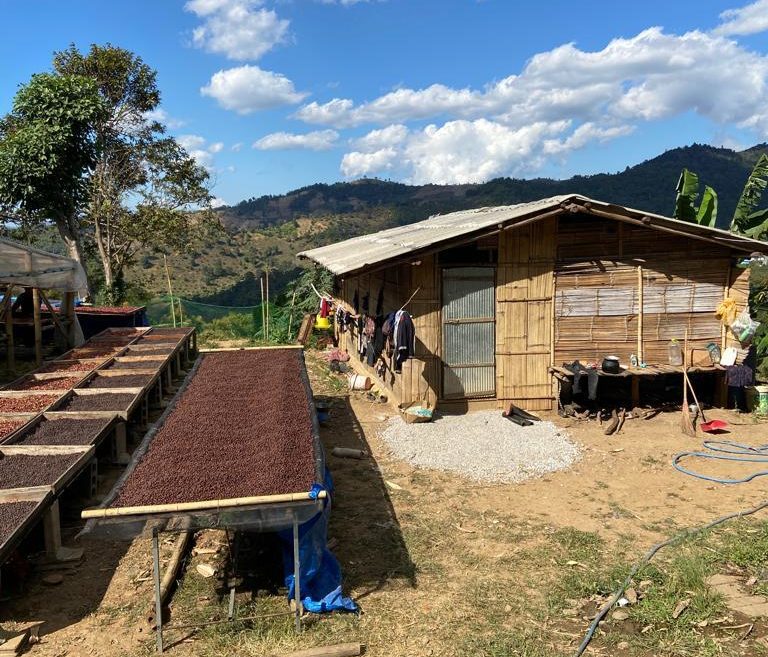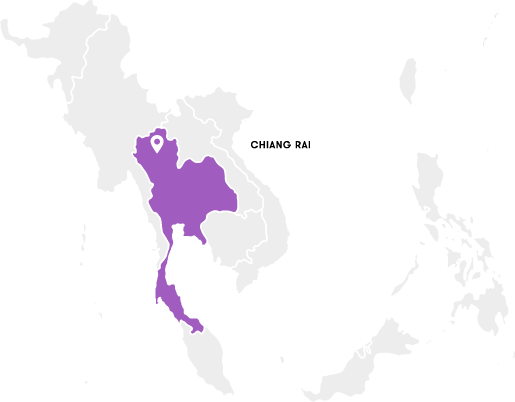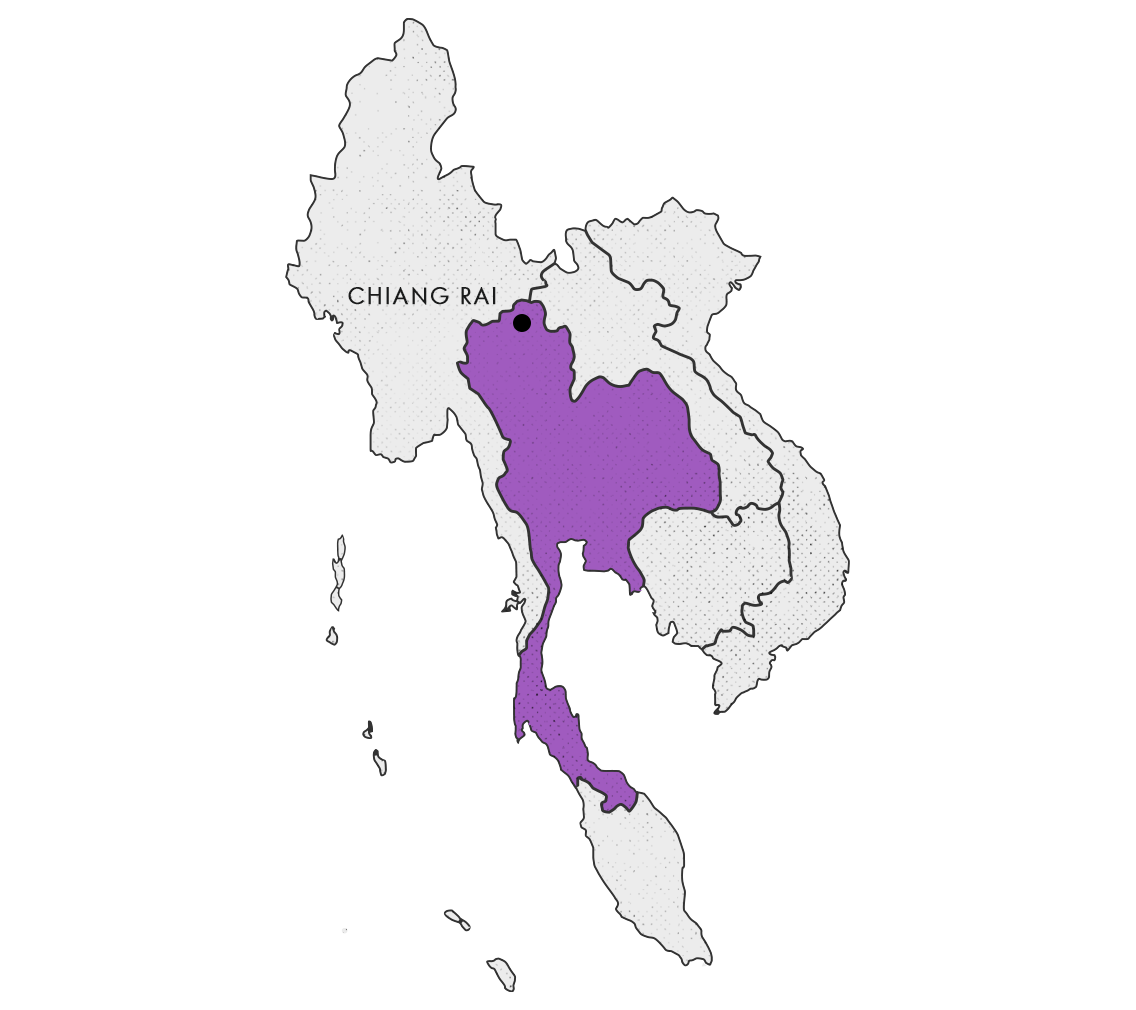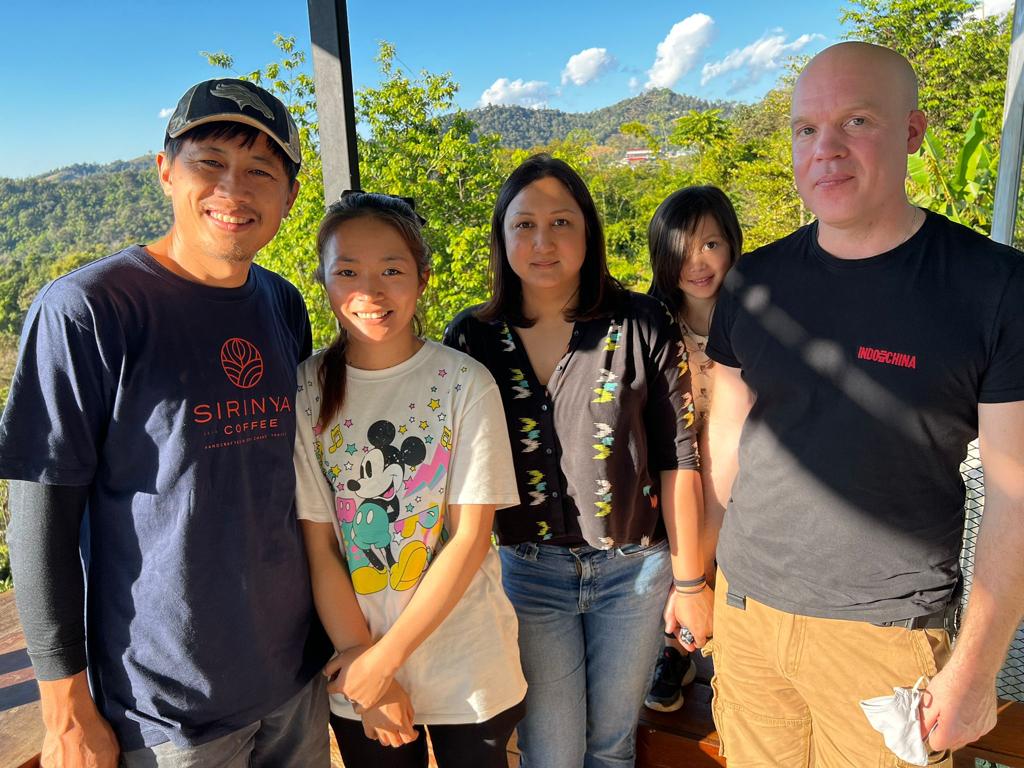
Thailand and its history of coffee cultivation
Thailand is the country where it all began for Indochina Coffee, it’s where we found out for ourselves firsthand the great potential for specialty coffee from Asia. Compared with other parts of the continent, coffee has been grown commercially inThailand for a relatively short period of time – only really since the early 1960s.
It mainly took off in the late ‘70s when the late King Bhumibol Adulyadej (Rama IX) championed the growing of coffee as a potential alternative crop to opium (the Arabica growing regions in the Greater Mekong correspond fairly closely to the notorious Golden Triangle). This policy of ‘alternative development’ (the current UN term) can be seen to be the key driver behind Thailand becoming an Arabica coffee growing country. It’s also been a remarkably successful policy – between 1998 and 2006, opium production here fell by more than 80%.
More recently, the production of coffee in the north is also seen as a valuable weapon in the fight against deforestation – Thailand has lost nearly 50% of its forests in the last 30 years. Naturally shade-grown coffee can be a vital element of permaculture with more and more farmers beginning to plant native trees at the same time as coffee plants.
Coffee cultivation has had a profound effect on this part of Thailand, providing long-term, sustainable and safe livelihoods for thousands of farmers, helping the environment and in recent years producing specialty lots that are enjoyed by the booming domestic specialty coffee scene.
Most of the coffee grown in Thailand is robusta, grown in the southern states with arabica is grown in the northern highlands, specifically the provinces of Chiang Mai and Chiang Rai as well as to a lesser extent in Nan, Mae Hong Song and Lampang. The people who call this area their home are part of an intense ethnic and cultural mix of, predominantly, hill tribes (or ‘highland Thais’, or Chao Khao). The main groupings being Akha, Karen, Lahu, Tien, Mien and Hmong (among many others).


Coffee cultivation has had a profound effect on this part of Thailand, providing long-term, sustainable and safe livelihoods for thousands of farmers, helping the environment and in recent years producing specialty lots that are enjoyed by the booming domestic specialty coffee scene.
Most of the coffee grown in Thailand is robusta, grown in the southern states with arabica is grown in the northern highlands, specifically the provinces of Chiang Mai and Chiang Rai as well as to a lesser extent in Nan, Mae Hong Song and Lampang. The people who call this area their home are part of an intense ethnic and cultural mix of, predominantly, hill tribes (or ‘highland Thais’, or Chao Khao). The main groupings being Akha, Karen, Lahu, Tien, Mien and Hmong (among many others).

Our Partners
Sirinya Coffee is family-run specialty coffee farm, roastery, and coffee shop based in the mountains of Chiang Rai province, led by Oil and Goh Chaosuwanwilai. Sirinya is born out of a commitment to the communities of Doi Chang, as well as stewardship of the land and constantly striving for excellence in all aspects of coffee. Opium was grown here for over 100 years, before government / NGO initiatives encouraged them to grow coffee instead. Poppy cultivation here dropped so significantly from the mid 1980s to the extent that Thailand is seen as a successful model for alternative development.
Whilst these farmers have been successfully growing coffee for over 40 years, Goh and Oil share their knowledge and expertise in all aspects of specialty coffee production, starting right from the beginning with the quality of the soil and organic farming methods through to the final processing. For the coffee farmers they work with, introducing these additional steps can elevate their very good coffee to specialty grade, and with it, commanding much higher prices and access to new markets.

Our Partners
Sirinya Coffee is family-run specialty coffee farm, roastery, and coffee shop in Chiang Rai led by Oil and Goh Chaosuwanwilai. Goh comes from a family that historically grew opium, which was later replaced by coffee. They have further expanded their family’s coffee farm in the hills of northern Thailand as a way to support their local community, many of which are generational coffee farmers, most of whom are stateless and lack access to many opportunities.
